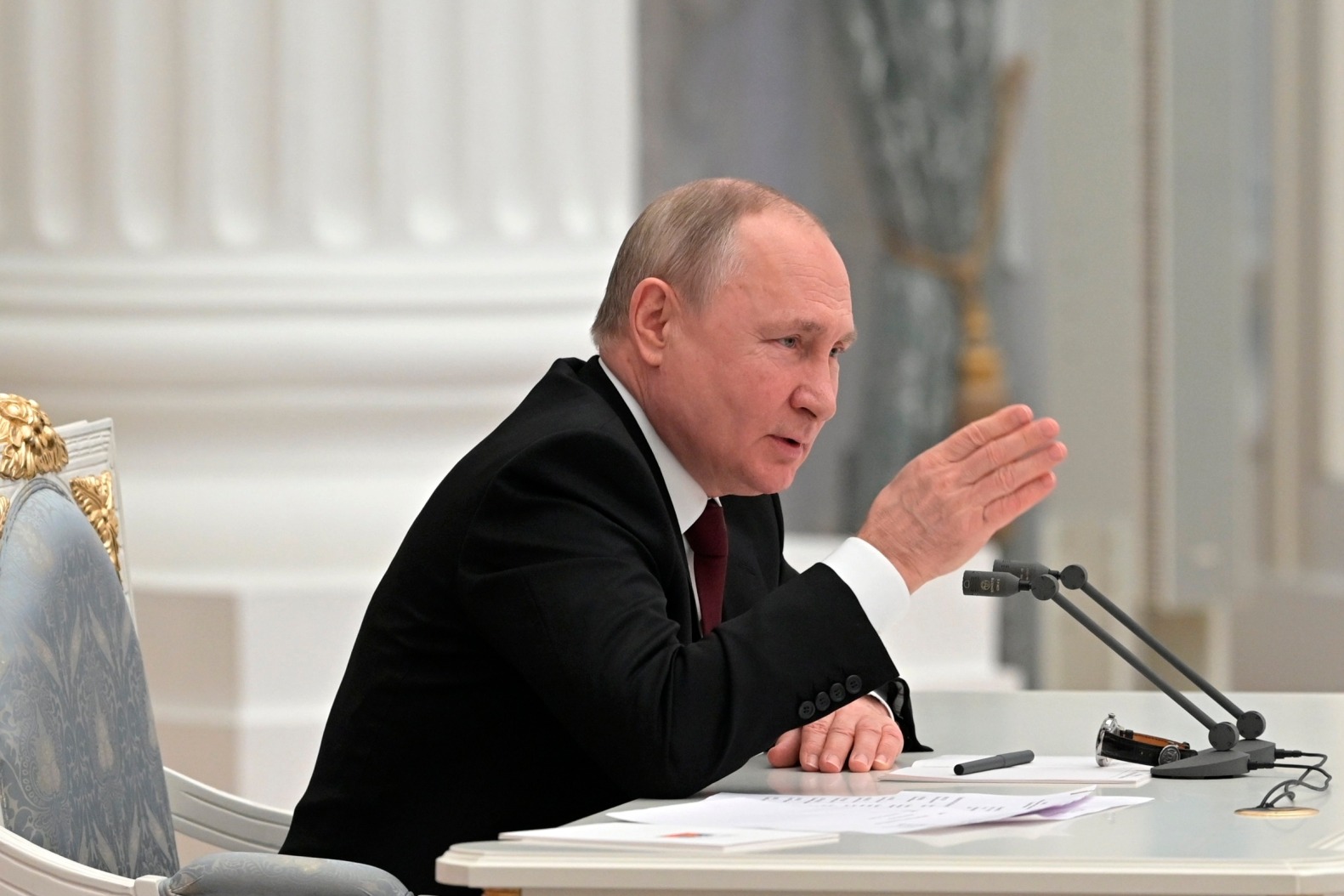President Vladimir Putin emerged victorious early Monday in a predetermined electoral process devoid of genuine competition, solidifying his control over Russia’s political landscape.
With partial election results affirming his dominance, Putin is poised to extend his rule for another six years, maintaining a grip on power that has endured for nearly a quarter-century.
Despite token opposition and stringent measures to suppress dissenting voices, some Russians defied the status quo by congregating outside polling stations at noon on Sunday, heeding a call from opposition figures to express their discontent with the president.
Putin (Credits: Al Jazeera)
However, Putin interpreted the turnout as a testament to the populace’s “trust” and “hope” in his leadership, while critics viewed it as further evidence of the election’s predetermined nature.
Public criticism of Putin or his actions, particularly the war in Ukraine, has been met with repression, with independent media outlets severely restricted and opposition figures like Alexei Navalny silenced through imprisonment or exile.
The absence of genuine choice for voters and limited independent monitoring of the electoral process underscored the lack of transparency and accountability in Russia’s political system.
While international condemnation of the election mounted, with Western nations dismissing it as a sham, Putin received congratulatory messages from leaders of countries like North Korea, Honduras, and Venezuela.
However, the opposition’s call for protest voting at noon appeared to gain traction, with crowds gathering at polling stations in Russia and abroad, including Navalny’s widow, Yulia Navalnaya, who spent hours in line at the Russian Embassy in Berlin, writing her late husband’s name on her ballot.
Putin downplayed the impact of the apparent protest, attributing it to organized calls urging participation. Some voters in Moscow and St. Petersburg claimed to be part of the protest, expressing hope for change, albeit with skepticism about its feasibility.
Putin (Credits: DNA India)
Meanwhile, supporters of Navalny visited his grave in Moscow, with some bringing ballots marked with his name and messages condemning Putin.
Despite the veneer of democracy, instances of voter suppression and irregularities were reported, including arrests for attempted arson and tampering with ballot boxes. Nevertheless, voting took place over three days across Russia, including in annexed regions of Ukraine and online.
The election underscored the challenges facing dissenting voices in Russia, where state-controlled media perpetuates a narrative of adulation for Putin, making it risky to voice alternative opinions.
Yet, pockets of resistance persisted, with Russians across the globe seizing any opportunity to express their discontent and call for change, even amidst a heavily controlled electoral environment.
